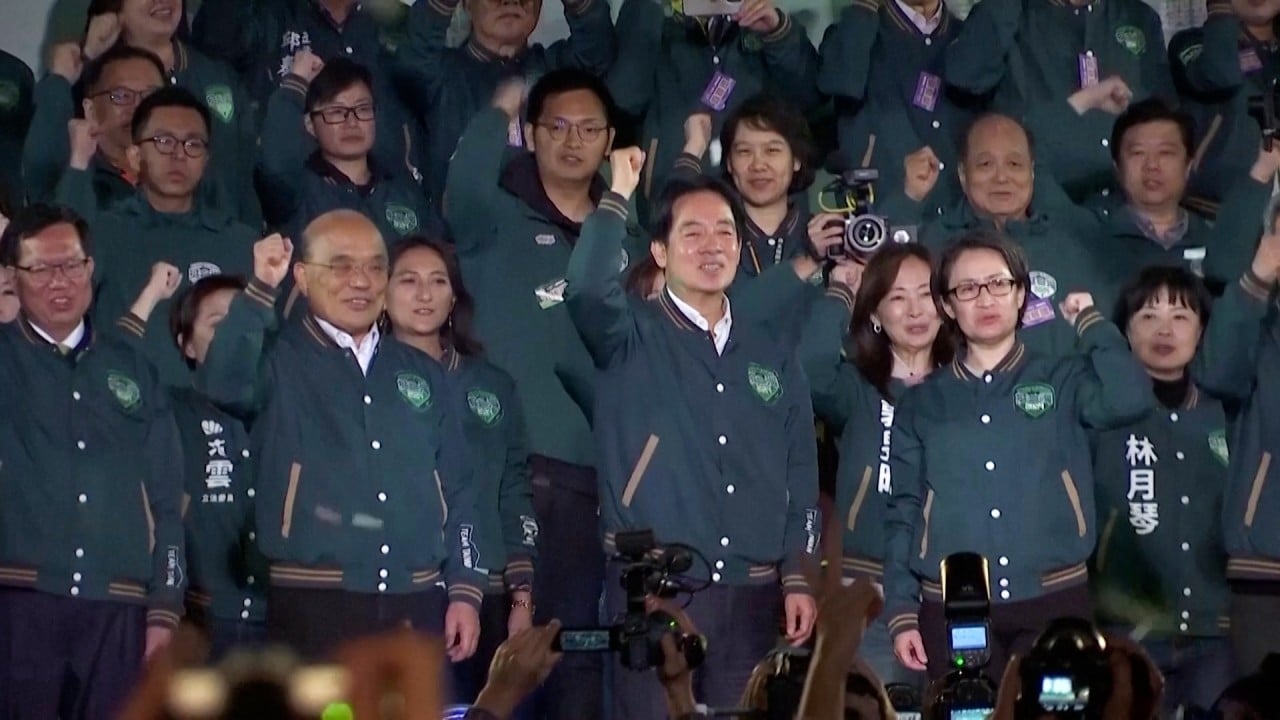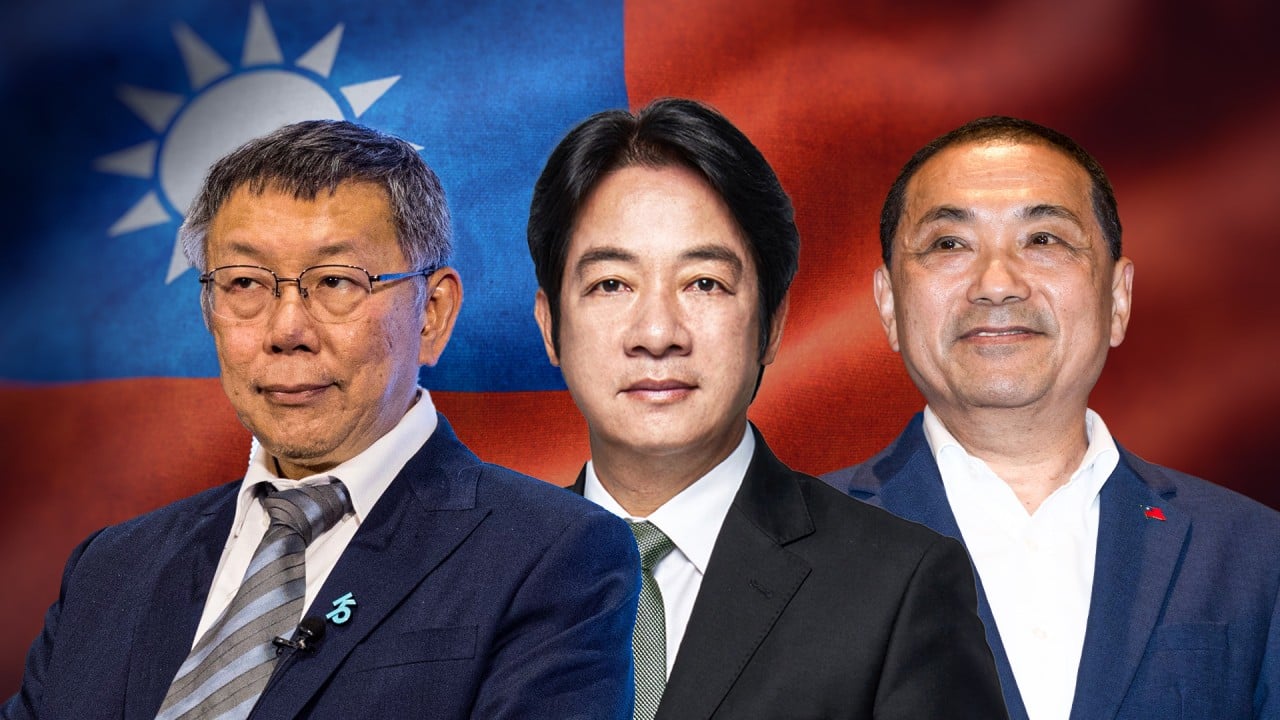
KMT’s Fu Kun-chi returns to ‘flashpoint’ Taiwan with peace mission for island’s next president
- William Lai must deflect the risk of war by improving relations with mainland China, Fu says after trip to Beijing
- ‘We do not wish for our children to shed blood for the Democratic Progressive Party,’ he says
Describing the Taiwan Strait as a “flashpoint” of potential conflict, Fu Kun-chi, the legislative caucus leader of the main opposition Kuomintang, said Lai and his incoming administration should seize the opportunity to ease tension with Beijing.
“We recognise that the world sees the Taiwan Strait as the next flashpoint [after Gaza and Ukraine], potentially leading to conflict. We do not wish for our children to shed blood for the Democratic Progressive Party,” Fu said, referring to Lai’s independence-leaning party.
Fu issued the call after he and 16 KMT lawmakers returned to Taipei from their three-day trip to the mainland.
During the visit, Beijing signalled goodwill with plans to ease restrictions on group travel to Taiwan and to resume imports of certain food products from the island.
“We should initiate extensive and inclusive efforts to promote exchanges, foster mutual understanding, mitigate misunderstandings, and ensure that all Taiwanese citizens can live and work peacefully and prosperously,” Fu said.
Fu’s trip to the mainland was labelled by the DPP as a “clown visit” aimed at “selling out Taiwan” but Fu said it yielded tourism and benefits for Taiwan, and opened avenues for cross-strait dialogue not only for the KMT but also for other political parties, including the DPP.
One of those developments was the decision to allow residents of Fujian province to visit Matsu, a Taiwanese defence outpost near the mainland coast.
The announcement came during a meeting in Beijing with vice-minister of culture and tourism Rao Quan, who also told Fu’s group that if Taiwan agreed to resume direct sea passenger routes from the Fujian county of Pingtan, residents of the province would be able to travel in groups to Taiwan.
Fu said that opening up sea passenger routes from Pingtan would enable the 50 million residents of Fujian to visit the island, giving a shot in the arm to Taiwan’s struggling tourism industry.
The mainland’s Civil Aviation Administration also urged Taiwan to restore direct flights between the two sides of the Taiwan Strait.
Fu said “the most crucial objective” of his trip was to reduce cross-strait tensions.
“I hope that president-elect Lai can courageously address the need to improve cross-strait relations and that the DPP and other political parties can facilitate exchanges across the strait,” Fu added, suggesting that this would enable the Taiwanese public to live and work in peace.
He urged the DPP to refrain from disparaging his trip, noting that even Lai had called for dialogue between his party and the Communist Party.
“If cross-strait exchanges are interpreted as betraying Taiwan, then is Lai also prepared to betray Taiwan?” Fu said.
Beijing sees Taiwan as its territory that must be reunited, by force if necessary. Like most countries, the United States – the island’s biggest arms supplier – does not recognise Taiwan as independent but is opposed to any unilateral change of the cross-strait status quo by force.



